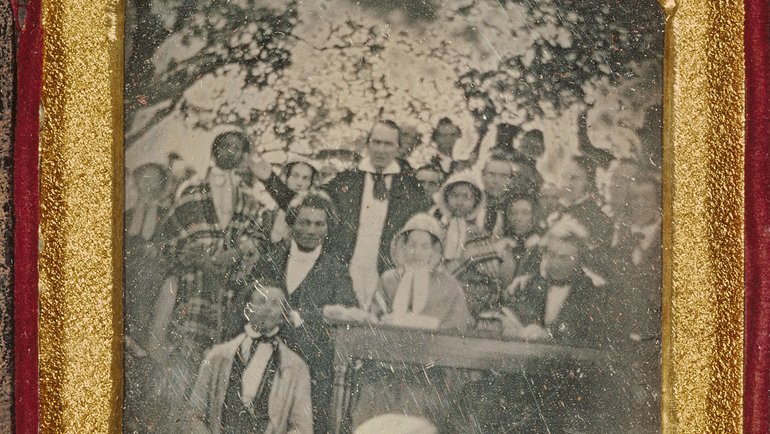Menu
Hot-Topics
May 17, 2022 | SCOTUS Wraps Up Oral Arguments for the Term
Month: October 2016

U.S. Supreme Court Struggles Over Design Patent Damages in Samsung v Apple
Weighty constitutional questions are not the only issues that frustrate the U.S. Supreme Court. In Samsung v Apple, the justices appeared equally exacerbated when tasked with establishing a standard for determining damages in a design patent infringe...

Jones v Van Zandt: Supreme Court Tackles Constitutionality of Slavery
Jones v Van Zandt, 46 U.S. 215 (1847) is one of the U.S. Supreme Court cases that considers slavery issues before the Civil War. The justices ultimately ruled against abolitionists, holding that the Fugitive Slave Law was a valid exercise of the auth...

Supreme Court to Consider Immunity for Cross-Border Shooting in Hernandez v Mesa
On October 11, 2016, the Supreme Court added several high profile cases to its docket. One of the most-anticipated cases is Hernandez v Mesa, which involves the fatal shooting of a Mexican teenager by United States Border Patrol from across the U.S. ...
Swift v Tyson Authorizes Federal Courts to Create Federal “Common” Law
In Swift v Tyson, 41 U.S. 1 (1842), the U.S. Supreme Court held that the federal courts were authorized to create their own body of common law when hearing cases based on diversity jurisdiction and were not bound by the decisions of the state courts ...

Pena-Rodriguez v Colorado: US Supreme Court Takes on Racism in the Courtroom
Racism is a hot button issue in the United States right now, and the U.S. Supreme Court is right in the middle of it. The justices recently heard oral arguments in Pena-Rodriguez v Colorado (no.15-606, 2016); in which the Court will be forced to weig...

SCOTUS to Consider Ban on Disparaging Trademarks in Lee v Tam
On September 29, 2016, the U.S. Supreme Court added nine cases to its docket. Lee v Tam, which challenges the federal ban on disparaging trademarks, has the potential to be a blockbuster. The Court’s decision could also have serious implications fo...

Worcester v Georgia: Indian Sovereignty and the States
In Worcester v Georgia, 31 U.S. 515 (1832), the U.S. Supreme Court held that the Cherokee Nation was sovereign. It also ruled that the federal government — and not the states — was authorized under the Constitution to deal with Indian nations. ...
Previous Articles
SCOTUS Wraps Up Oral Arguments for the Term
by DONALD SCARINCI on May 17, 2022
The U.S. Supreme Court has concluded its oral arguments for the October 2021 Term. The justices hea...
SCOTUS Rules Censure of Elected Board Member Didn’t Violate First Amendment
by DONALD SCARINCI on May 10, 2022
In Houston Community College System v. Wilson, 595 U.S. ____ (2022), the U.S. Supreme Court held th...
Supreme Court Breach Is Not the First Involving Roe v. Wade
by DONALD SCARINCI on
The recent disclosure of Justice Samuel Alito’s decision purporting to overturn Roe v. Wade is ar...
The Amendments
-
Amendment1
- Establishment ClauseFree Exercise Clause
- Freedom of Speech
- Freedoms of Press
- Freedom of Assembly, and Petitition
-
Amendment2
- The Right to Bear Arms
-
Amendment4
- Unreasonable Searches and Seizures
-
Amendment5
- Due Process
- Eminent Domain
- Rights of Criminal Defendants
Preamble to the Bill of Rights
Congress of the United States begun and held at the City of New-York, on Wednesday the fourth of March, one thousand seven hundred and eighty nine.
THE Conventions of a number of the States, having at the time of their adopting the Constitution, expressed a desire, in order to prevent misconstruction or abuse of its powers, that further declaratory and restrictive clauses should be added: And as extending the ground of public confidence in the Government, will best ensure the beneficent ends of its institution.
Awards




